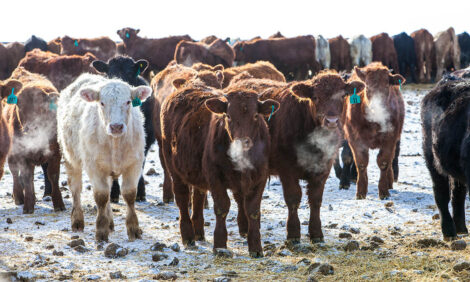



FAO Reiterates Continued Support to Africa's Livestock Sector
AFRICA - The UN Food and Agriculture Organization (FAO) has reiterated that it would continue supporting Africa's livestock sector.Speaking at a workshop that launched a project dubbed Africa Sustainable Livestock 2050 (ASL2050), Patrick Kormawa, FAO Sub-regional Coordinator for Eastern Africa, noted that Livestock, which is one of the fastest growing agricultural sectors in Africa, is a major component of FAO's programme on the continent.
In partnership with US Agency for International Development (USAID), and six African countries, FAO on Thursday (23 February) launched the ASL2050 project towards sustainable and productive livestock in Africa.
Mr Kormawa, who is also FAO Representative to the AU and UNECA, has noted that FAO works in Africa based on Africa's priorities and commitments, such as the Comprehensive Africa Agriculture Development Programme (CAADP) and the Malabo declaration, as well as by country priorities.
Reiterating that livestock is a major component of FAO's programme in Africa, Kormawa has expressed FAO's continued support to African projects and programmes in the sector towards sustainable and productive livestock on the continent.
According to data from the FAO Global Perspective Studies Unit, it is estimated that by 2050, the meat market will be 34.8 million tonnes and the milk market is projected at 82.6 million tonnes, an increase of 145 and 155 per cent respectively over 2005-07 levels, noted the official.
Over this period, Africa's increase in volume of meat consumed will be on a par with that of the developed world and that of Latin America, with only South and Southeast Asia anticipated to have higher growth, according to Mr Kormawa.
"In this respect, policy and institutional reforms should be developed, building on solid data and evidence based analysis, to ensure that the opportunities generated by the growing market for animal-sourced foods translates into widespread benefits for the populace, including livestock producers, other actors along value chains, as well as for consumers," he said.
"This is challenging because of the heterogeneity and complexity of the livestock sector and, in particular, because of the negative effects that the livestock sector can have on society, notably through zoonotic diseases; contaminated animal source foods; pollution of soil, water and air; and loss of biodiversity," he added.
Hailing the newly launched ASL2050 project in addressing the complexities in Africa's livestock sector, the official said FAO would make every effort to support the smooth and effective implementation of the project towards benefiting the entire Africa continent.
"The project (ASL2050) allows us to take a long-term perspective on livestock development; it allows us to identify major challenges as well as opportunities associated with the long-term development of livestock; it allows us to identify priority actions, policies and investments needed now, to ensuring healthy and sustainable livestock systems in the future," he noted.
TheCattleSite News Desk


